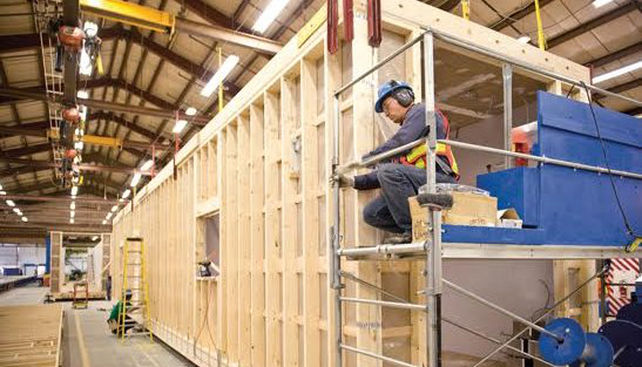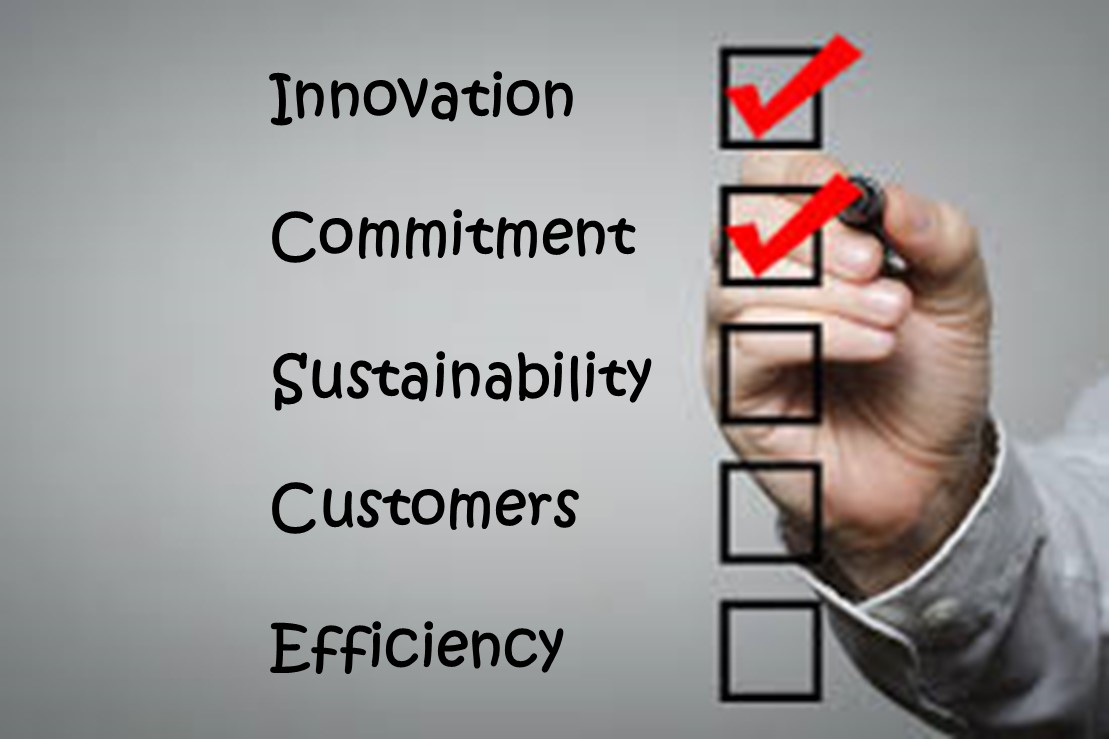The path to success in offsite construction is paved with diverse strategies and principles that set leading companies apart. A recent industry survey in my weekly newsletter sought to uncover the driving forces behind the success of these trailblazers, revealing five core areas that have become the bedrock of their achievements.

.
These are not just buzzwords but represent the guiding philosophies that shape the operations and outcomes of offsite construction projects. Let’s delve deeper into the survey results, exploring how these factors contribute to the sustained success of companies in the sector.
“What do you think is the biggest reason for your offsite construction success?“
Commitment to Quality and Customer Satisfaction – 39.5%
Unsurprisingly, nearly 40% of respondents pointed to a steadfast commitment to quality and customer satisfaction as the primary reason for their success. In an industry where trust is paramount, maintaining high standards of quality ensures that projects not only meet but exceed expectations. Offsite construction, which inherently requires precision and attention to detail, benefits immensely from this focus. Quality is not just about the materials or the finished product; it extends to every interaction with the customer, from the initial consultation to the final delivery.
Companies that prioritize quality often invest heavily in training their workforce, ensuring that every team member understands the importance of their role in the overall process. This dedication results in structures that are not only durable and well-crafted but also aligned with the client’s vision and needs. Moreover, a strong commitment to customer satisfaction builds long-term relationships, leading to repeat business and word-of-mouth referrals, which are crucial in an industry where reputation is everything.
Efficient Project Management and Timely Delivery – 23.3%
The second most significant factor, cited by 23.3% of respondents, is the efficiency of project management and the ability to deliver projects on time. In the construction industry, delays can be costly, both financially and in terms of reputation. Offsite construction companies that have mastered the art of project management stand out for their ability to streamline operations, reduce waste, and meet tight deadlines without compromising quality.
Efficient project management involves meticulous planning, coordination among various teams, and the use of advanced project management software to track progress and address potential issues before they escalate. Timely delivery is particularly critical in offsite construction, where components are manufactured in a factory setting and then transported to the site for assembly. Any delay in the manufacturing process can have a domino effect, causing setbacks in the overall project timeline.
The ability to deliver projects on time not only satisfies customers but also maximizes the use of resources, reducing overhead costs and increasing profitability. Companies that excel in this area often find themselves in high demand, as clients seek reliable partners who can deliver as promised.
Being Customer-Centric – 16.3%
For 16.3% of respondents, being customer-centric was the key to their success. This approach goes beyond simply meeting customer needs; it involves anticipating them, understanding the unique challenges they face, and providing solutions that are tailored to their specific circumstances. In the offsite construction industry, where projects can range from residential homes to large-scale commercial buildings, a one-size-fits-all approach rarely works.
Being customer-centric means that companies must be flexible and adaptable, willing to customize their offerings to suit the client’s needs. This could involve designing modular components that align with a client’s architectural vision or offering a range of sustainable building options for environmentally conscious customers. A customer-centric approach also requires open communication, with companies keeping clients informed at every stage of the project and being responsive to their feedback.
This level of personalization and attention to detail creates a strong bond between the company and its clients, fostering loyalty and ensuring that customers feel valued and understood. In a competitive market, this can be a significant differentiator, helping companies stand out from the crowd.
Innovative Construction Techniques and Technology – 14%
Innovation has always been a driving force in the construction industry, and for 14% of respondents, adopting innovative construction techniques and technology was the cornerstone of their success. Offsite construction, by its very nature, is an innovative approach, offering numerous advantages over traditional methods, including speed, efficiency, and reduced environmental impact.
Companies that prioritize innovation are constantly exploring new materials, methods, and technologies that can enhance their offerings. This might include the use of advanced robotics and automation in manufacturing, integrating Building Information Modeling (BIM) to improve accuracy and collaboration, or developing new modular systems that offer greater flexibility and design options.
Embracing innovation not only improves the efficiency and quality of projects but also positions companies as industry leaders, attracting clients who are looking for cutting-edge solutions. Moreover, innovative companies are often better equipped to handle complex projects and adapt to changing market demands, giving them a competitive edge.
Sustainable Practices and Eco-Friendly Solutions – 7.0%
While only 7% of respondents identified sustainable practices and eco-friendly solutions as the primary reason for their success, this is an area of growing importance. As the construction industry grapples with its environmental impact, companies that prioritize sustainability are gaining recognition and respect. Offsite construction inherently offers some environmental benefits, such as reduced waste and energy efficiency, but leading companies are taking this further by incorporating sustainable materials, energy-efficient designs, and green building practices into their projects.
Sustainability is not just about meeting regulatory requirements or catering to eco-conscious clients; it represents a broader commitment to the future of the industry and the planet. Companies that lead in this area are often involved in research and development, exploring new ways to minimize their carbon footprint and create buildings that are not only functional and beautiful but also environmentally responsible.
By integrating sustainable practices into their operations, these companies are helping to shape the future of the construction industry, making it more resilient and adaptable to the challenges of climate change and resource scarcity.
Modcoach Note
The success of offsite construction companies is not the result of a single factor but a combination of strategies that together create a strong foundation for growth and achievement. From a commitment to quality and customer satisfaction to the adoption of innovative technologies and sustainable practices, these companies are setting new standards in the industry. As the offsite construction sector continues to evolve, the insights from this survey provide a valuable roadmap for others looking to achieve similar success, highlighting the importance of staying true to core principles while remaining adaptable and forward-thinking.
.
CLICK HERE to read the latest edition
Contact Gary Fleisher












